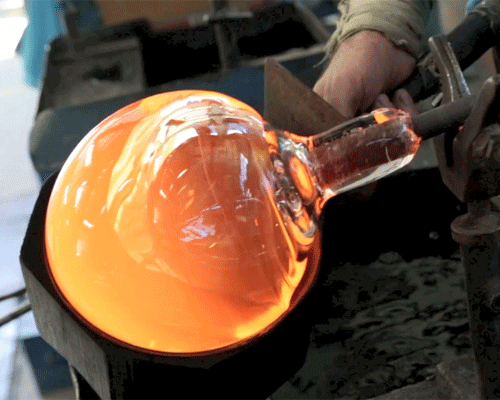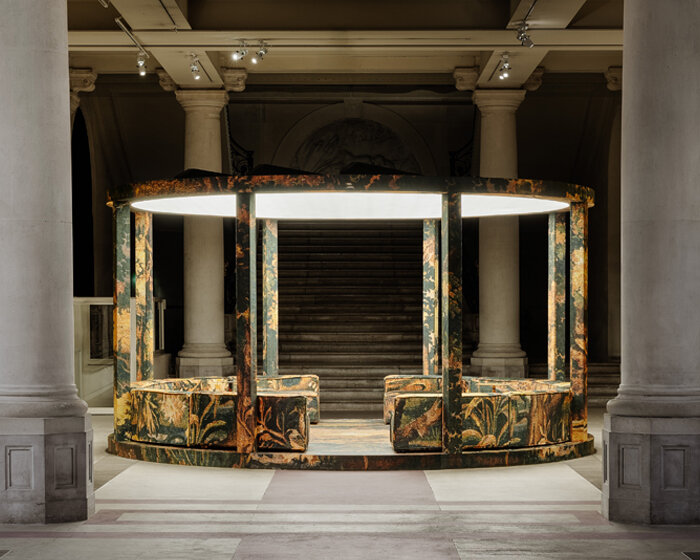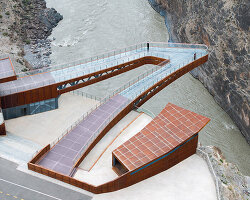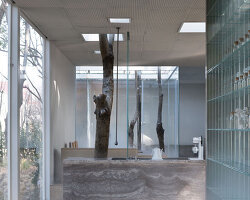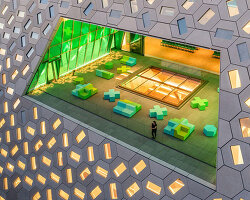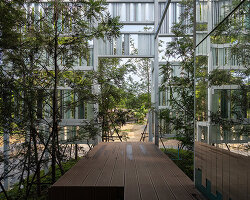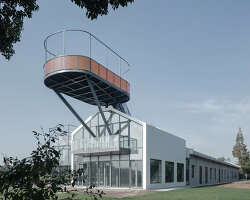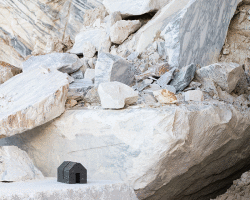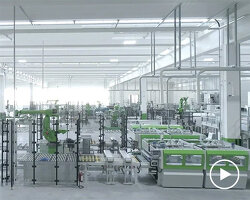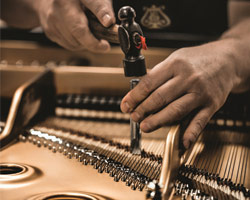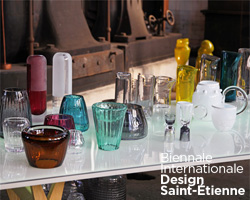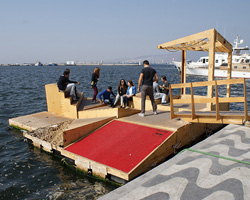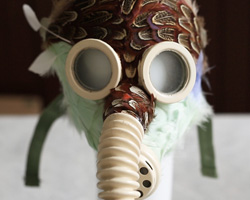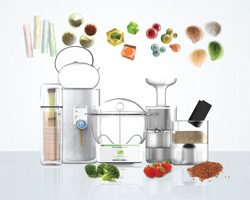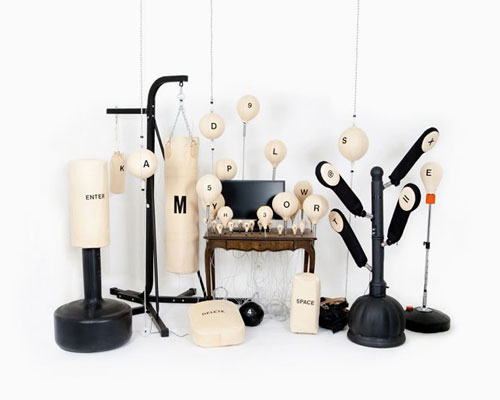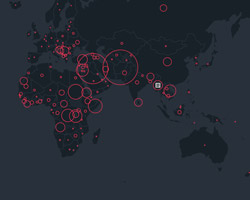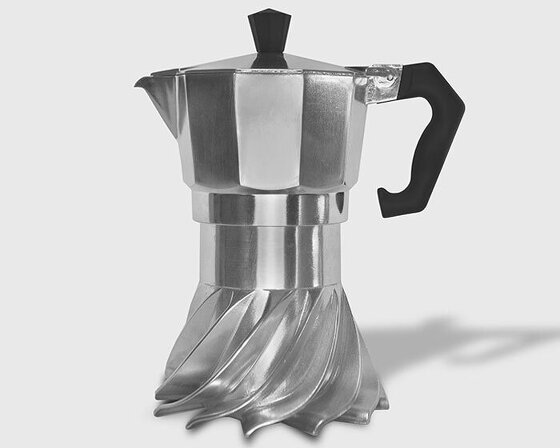glass is tomorrow workshop: design meets craft at sişecam factory in turkey
designboom recently attended the 5th ‘glass is tomorrow’ workshop, inside the production facilities of one of the world’s top three home glassware manufacturers, the ‘sişecam group’ in denizli, turkey. the workshop aimed to push the boundary of technique, process, material, and aesthetics (the appreciation of glass as a creative medium). glass is tomorrow is an european network which aims at establishing a more fluid exchange of knowledge and competencies between glass and design professionals in europe. the project hopes to open up new potentialities and to generate dialogue about the conception, production and distribution of contemporary glass works.
video by anne croquet
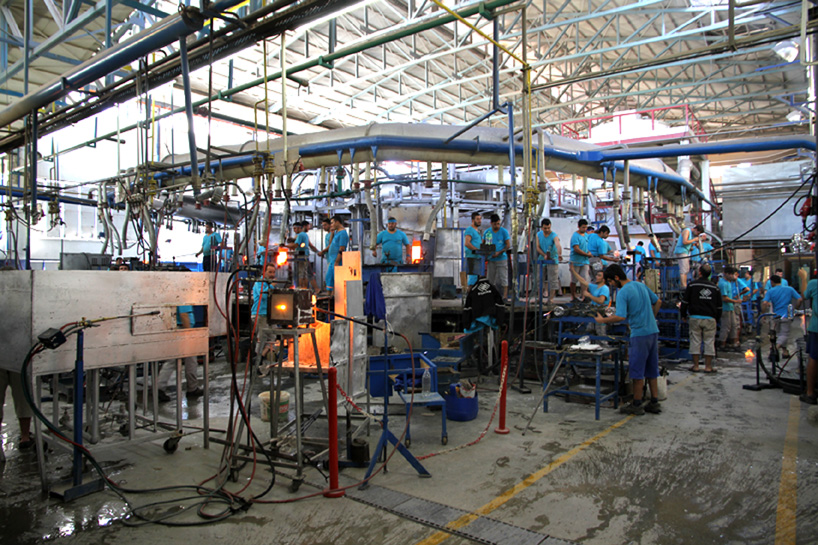
factory interior
turkish glass traditions are bridging cultures from the mediterranean sea, from east and west. during this one-week event, traditional glassmaking has been challenged by the invited international independent designers and glassmakers.
participating designers: autoban / seyhan özdemir and sefer cağlar (TR), nigel coates (UK), luca corvatta of studio benjamin hubert (UK), tomas kral (CH), tamer nakisci (TR), adrien rovero (CH), studio rygalik / gosia and tomek rygalik, and nude design team: sinem hallı and sevgi kes (TR).
glass blowers: marika kinnunen (FI), clément le mener + vincent breed / cercle du verre (FR), the group’s in-house artisans: master ramazan team and master ali team.
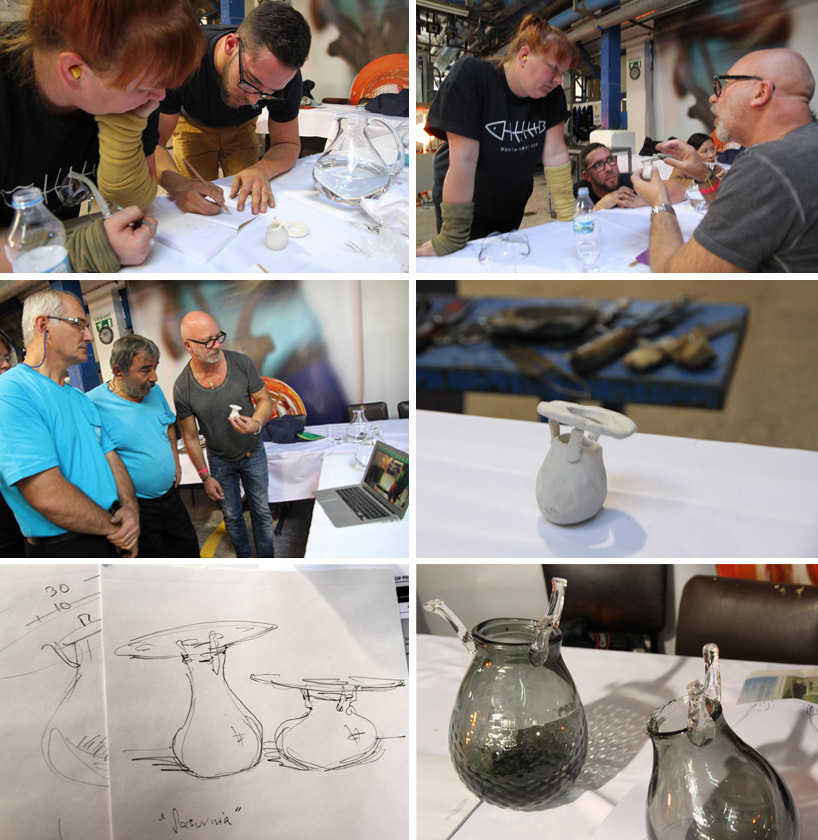
UK designer nigel coates explains his project of a vase to the local craftsmen and the invited international glassblowers. to explore the organic nature of glass, the designers worked with traditional glassblowing tools, furnace- flame- and cold working, but also with self-initiated variations of these techniques to create their very own glass product.
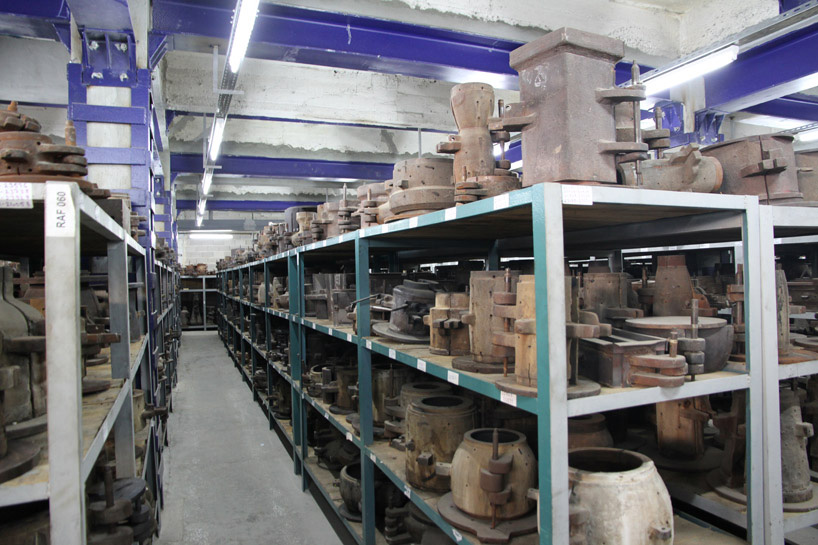
designers could make use of the extensive mould archive of the 79 year old manufacture sişecam
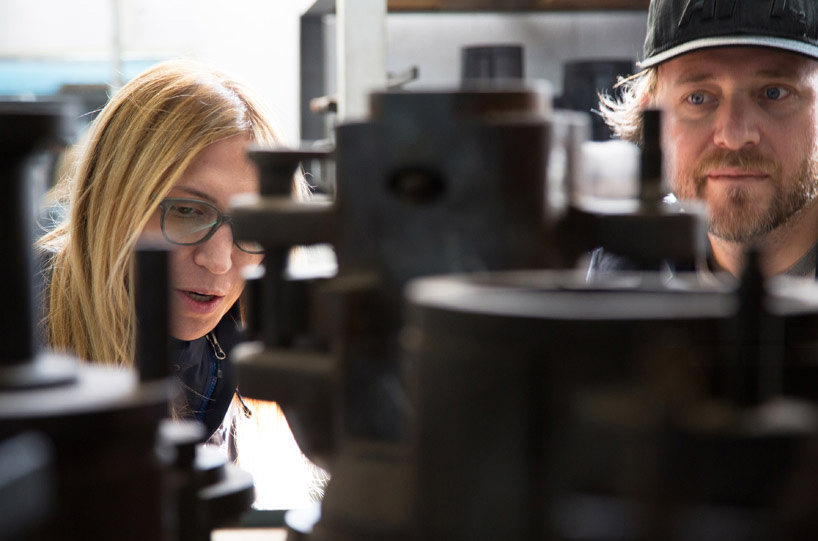
istanbul-based autoban designers seyhan özdemir and sefer cağlar visiting the mold archive
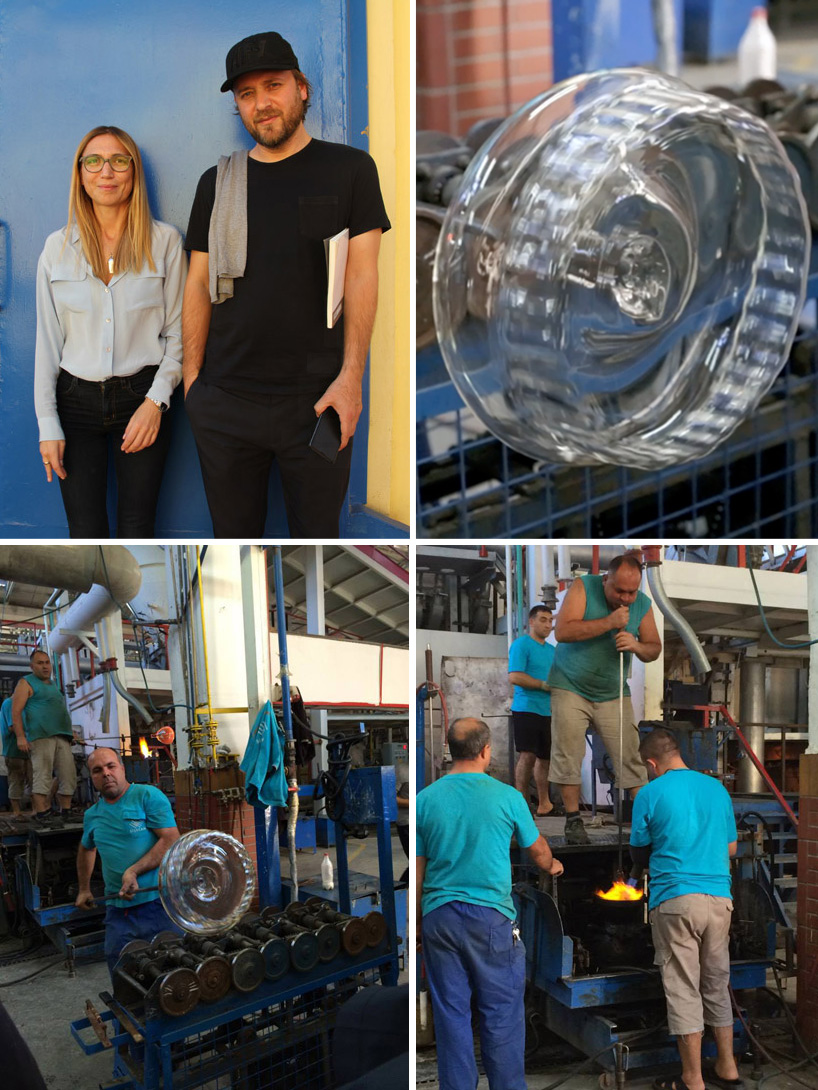
the making of an autoban project – a bowl that resembles a skirt…
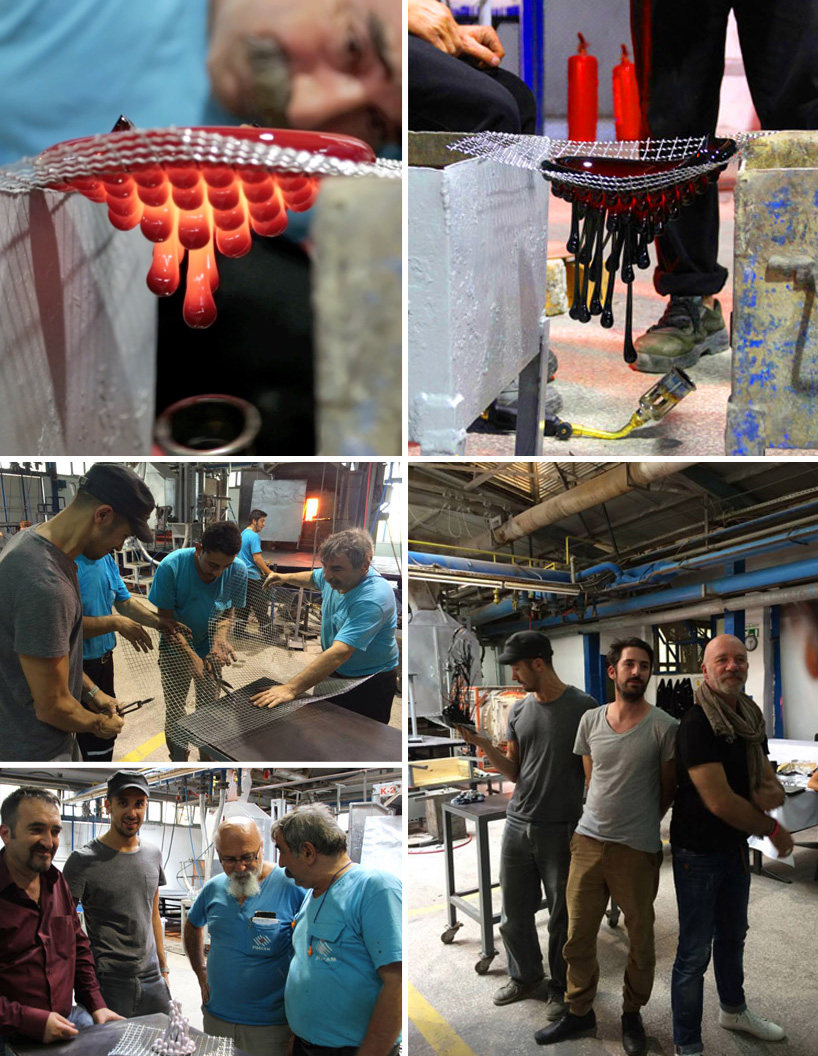
(left to right) istanbul-based designer tamer nakisci, the swiss adrien rovero and nigel coates among local glass blowers with experimental work of metal net and liquid glass
see glass being made
glass blowing is a process of shaping an object from molten glass by blowing air into it through a tube.
the two major methods of glassblowing are free-blowing and mold-blowing. especially for artistic purposes the free glass blowing is the most preferred.
video courtesy of designboom
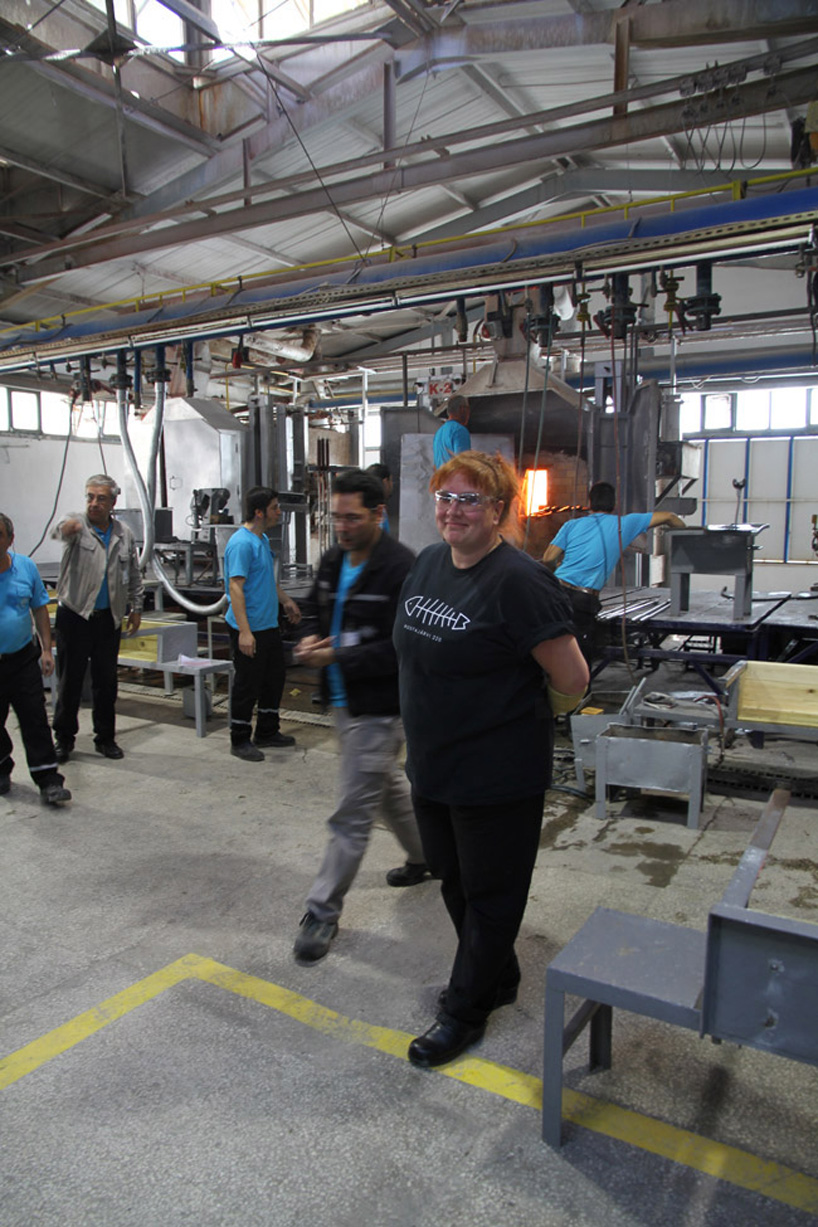
the finnish glassblower marika kinnunen was the first female artisan to produce glass work in the sişecam handmade glass factory in denizli
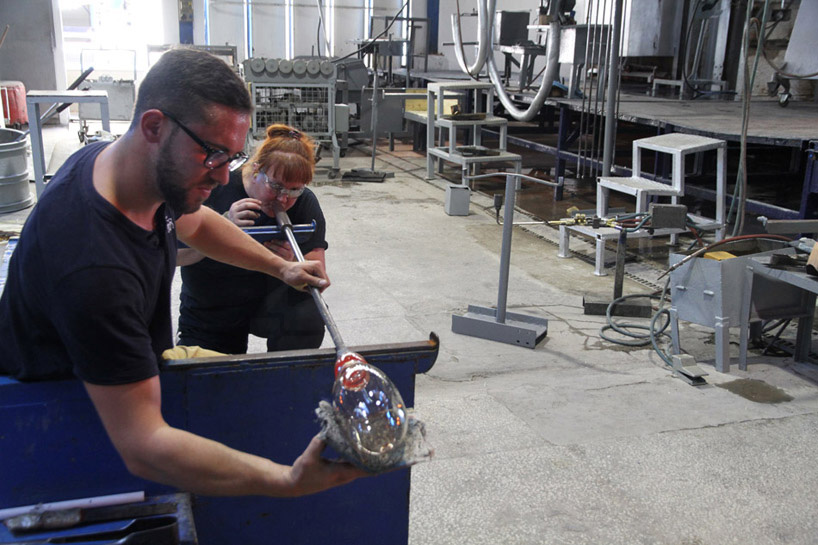
the glassworker inflates the molten glass and covers the hole of the tube with his thumb. the heat will cause the trapped air to expand inside the pipe, which in turn will create a bubble. this first gather and bubble is called the parison. to continue to shape the piece into a bullet, the french clément le mener uses a wet newspaper meanwhile the finnish glassblower marika kinnunen continues to blow. in between the steps he reheats it in the glory hole. skilled workers are capable of shaping almost any vessel forms by rotating the pipe, swinging it and controlling the temperature of the piece while they blow.
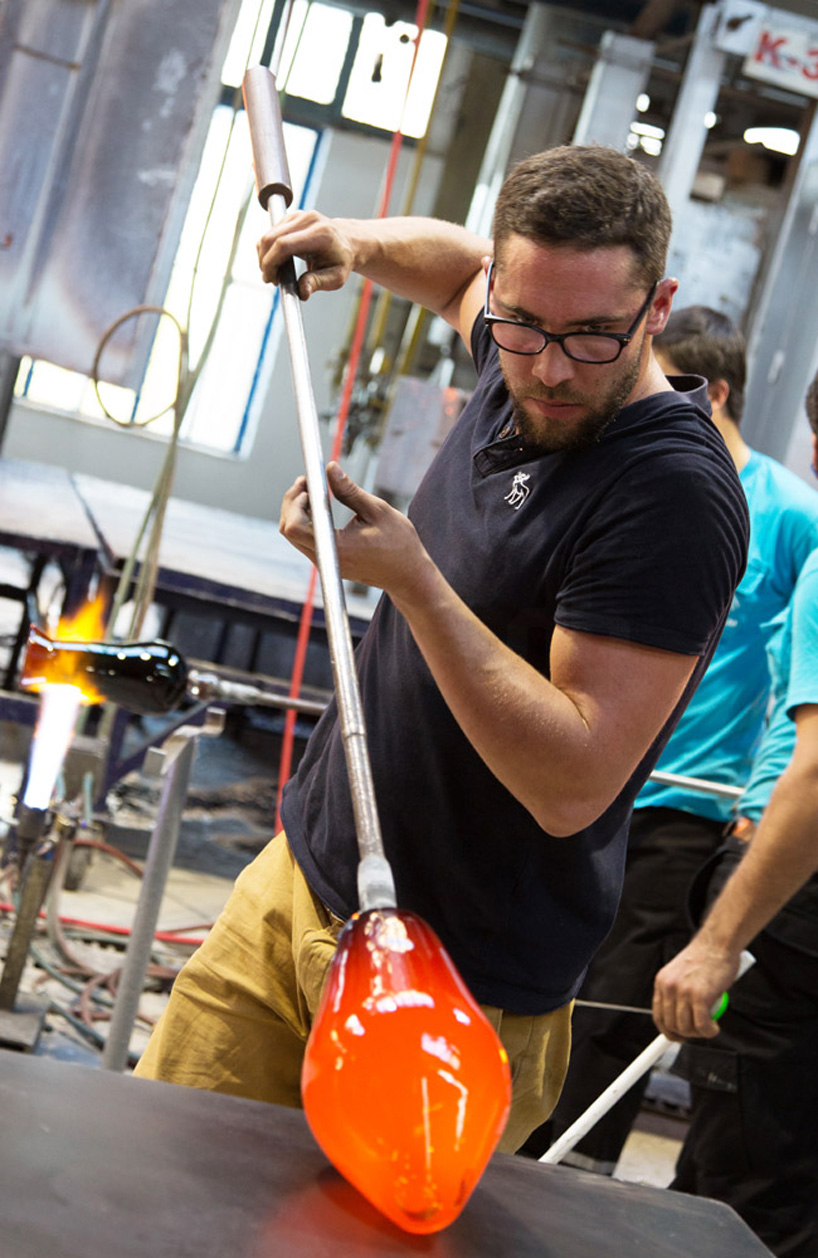
clement le mener is rolling the glass bullit on the marver (a steel table)
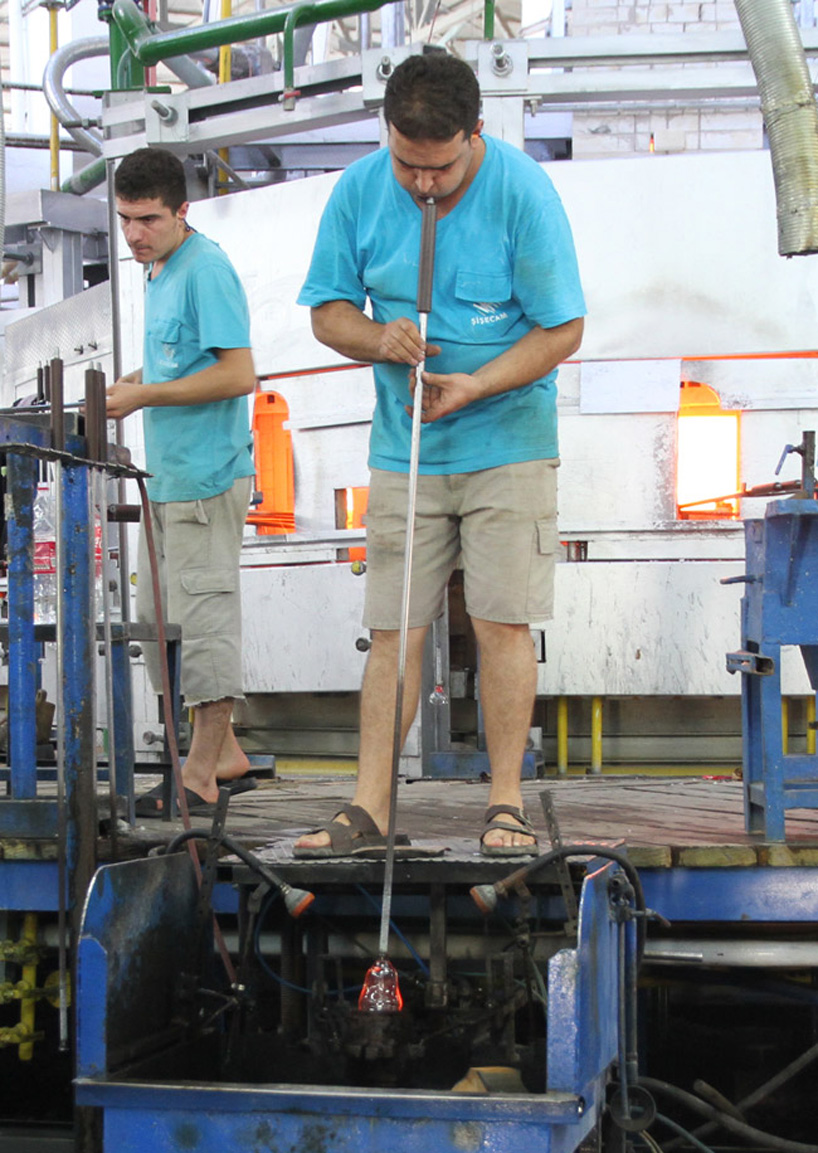
mold blowing — a glob of molten glass is placed on the end of the blowpipe, and is then inflated into a wooden or metal carved mold. in this way, the shape and the texture of the bubble of glass is determined by the design on the interior of the mold rather than the skill of the glassworker. the development of the mold-blowing technique has enabled a more speedy production of glass objects and in large quantity, thus encouraging mass production and widespread distribution of glass objects.
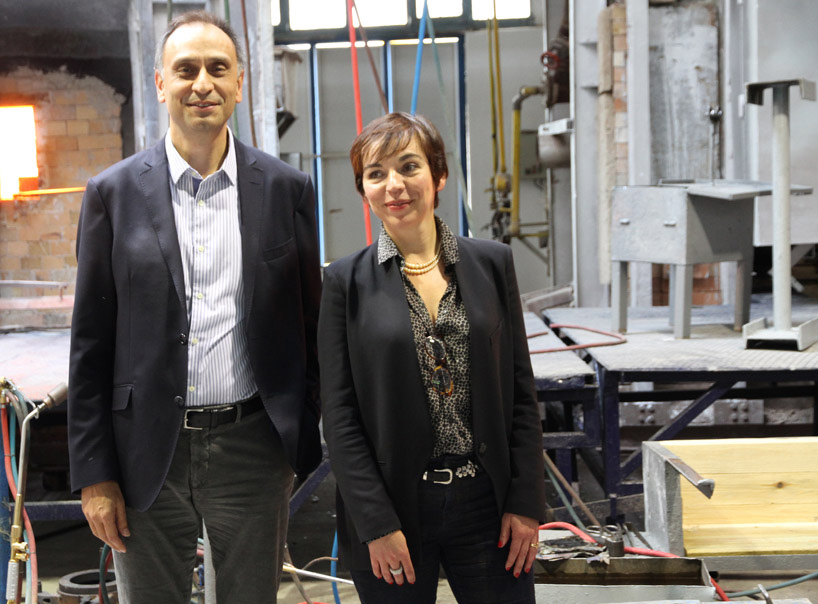
emre bozbeyli, design manager at sisecam and ‘glass is tomorrow’ curator lise coirier
the first results of this denizli workshop are shown in an exhibition in the autoban showroom ‘glass is tomorrow meets NUDE‘ from november 1st to december 12, 2014, during istanbul design biennial.
address: meşrutiyet cad. No:99/1 34430 tepebaşı – istanbul beyoğlu (autoban studio ground floor).
if you are in town, COME and SEE! designboom will publish a follow-up.

promotes a high level of craft and design in contemporary glass making
lighting and tableware are at the essence of the modern turkish and global cultural identity and are re-invented and re-created through the collaborative work of both the designers and glass artists and makers. the 5th glass is tomorrow workshop has been held at şişecam group‘s handmade glass factory in denizli, turkey, from 18 to 24 october 2014.
organized by: promateria / lise coirier, founder and curator and winglam kwok, co-curator, and şişecam/ emre bozbeyli, design manager, supported by the culture programme of the european union
media partners: designboom, TL mag
images and video by: anne croquet and designboom
—
a brief history of ‘şişecam group‘ and lifestyle brand ‘nude‘
the turkish glass roots go back to the byzantine period in anatolia where beads, bracelets and colorful glass products were produced based on ancient glass techniques such as casting, press and core molding as well as glass windows and glass oil lamps using the plain glass for creating decorative and lighting effects. later on, glass craftsmen were traveling from france to turkey during the reign of the ottoman empire’s reform-minded sultan selim III. with the foundation of the republic, the turkish glass industry was given new opportunities. the first national glass factory was founded on the slopes of the bosphorus at paşabahçe, not far from the site of other glass studios in 1935 by the directives of ataturk and the approval of a parliamentary commission.
one of the most established enterprises in turkey, sisecam group is a global actor in business fields including all main areas of glass, i.e. flat glass, glassware, glass packaging and fiberglass, as well as soda and chrome compounds. sisecam, 2nd largest glassware, 3rd largest flat glass and 4th largest glass packaging manufacturer in europe in terms of production capacity, has manufacturing activities in turkey, germany, italy, bulgaria, romania, slovakia, hungary, bosnia-herzegovina, the russian federation, georgia, ukraine, egypt and india. an international group with an experience of 79 years, more than 20.000 employees, manufacturing activities in 13 countries and sales in 150 countries, sisecam aims at becoming one of the three largest global manufacturers in line with its vision for 2020.
this first factory, founded as the ‘türkiye sisecam cam fabrikalari A. S.’ will see its 80th anniversary in 2015. the glass tableware division manufactures soda-ash and crystal glass both hand mode and automatic production. the company gathered many glass craftsmen from all parts of the country and developed into an important glass making center for the history of turkish glass. ever since 1935, it has been performing the investment and production via the deployment of state-of-the-art technology in the glass industry as well as research and development activities to meet the entirety of essential requirements for glass products in the country.
the young brand ‘nude’ is more simple, contemporary and sensuous in style.
nude is led by emre bozbeyli, yair haidu and the creative team included world-renowned designers such as ron arad, rony plesl, alev ebüzziya and ali bakova. nude also presents a swarovski collection that incorporates small crystals into six glassware sets, and a ‘turkish wine glasses’ collection, created by an expert team of 15 oenologists, sommeliers and professionals.
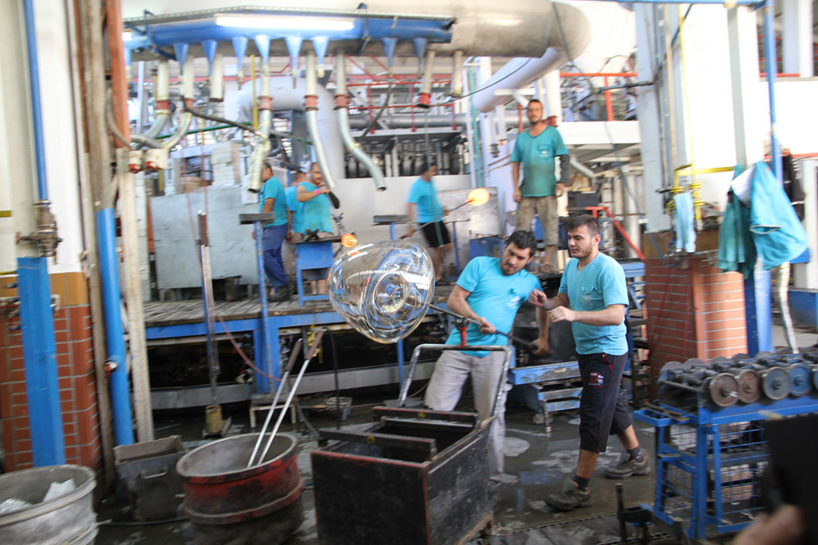
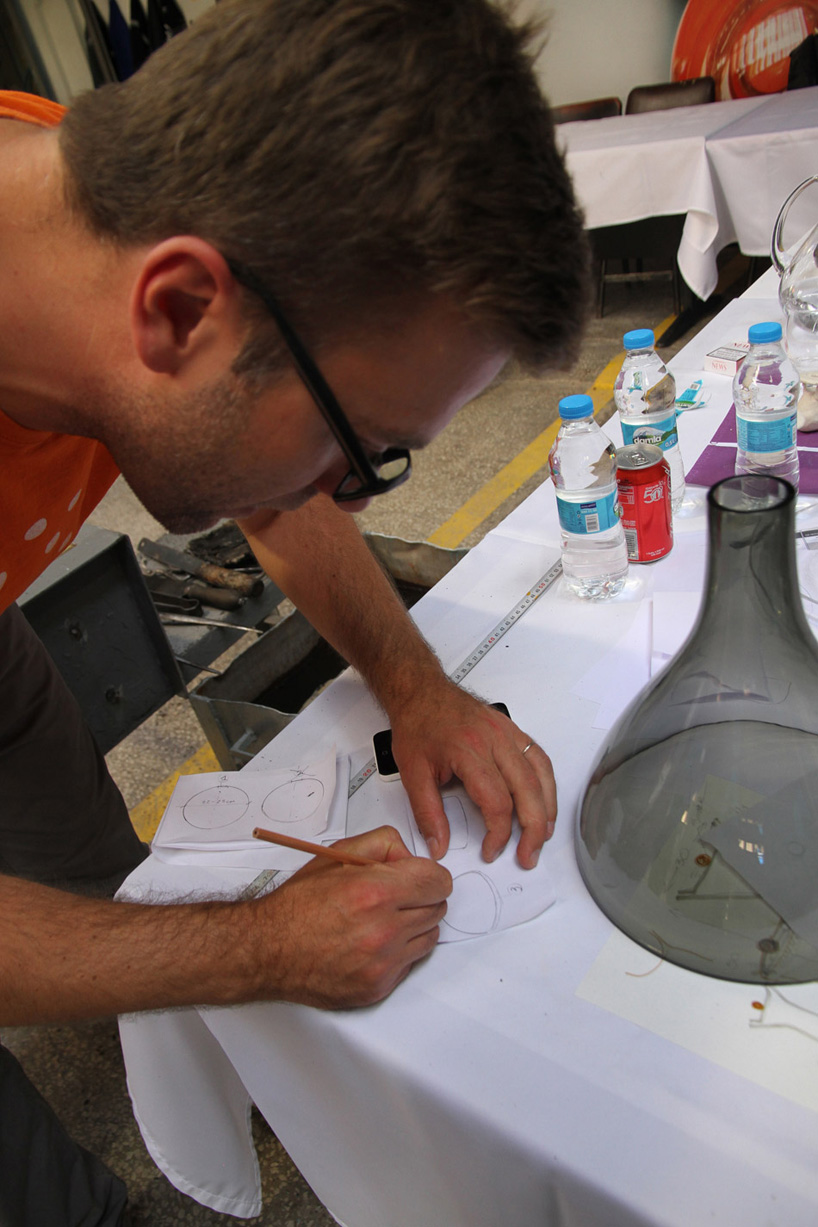
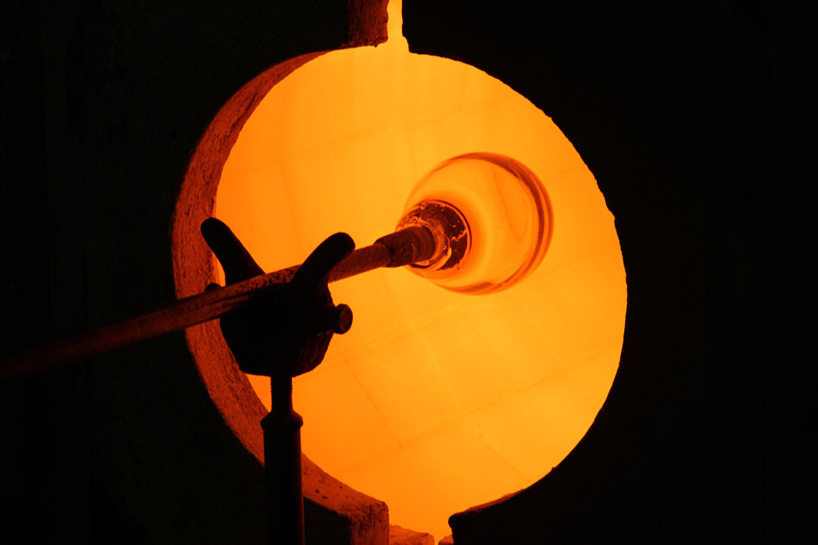
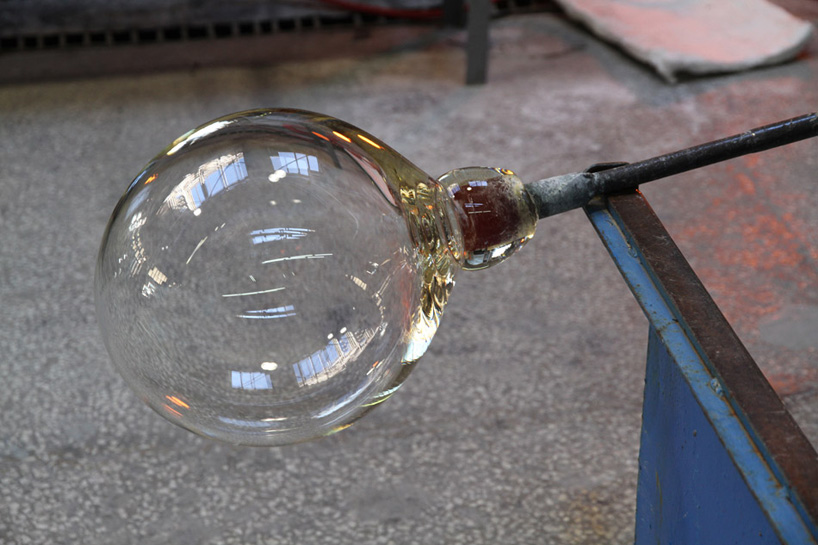
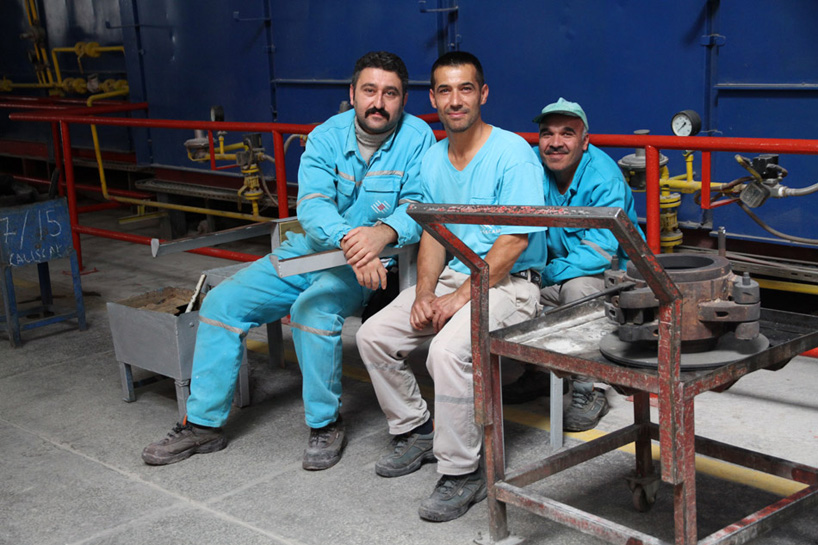
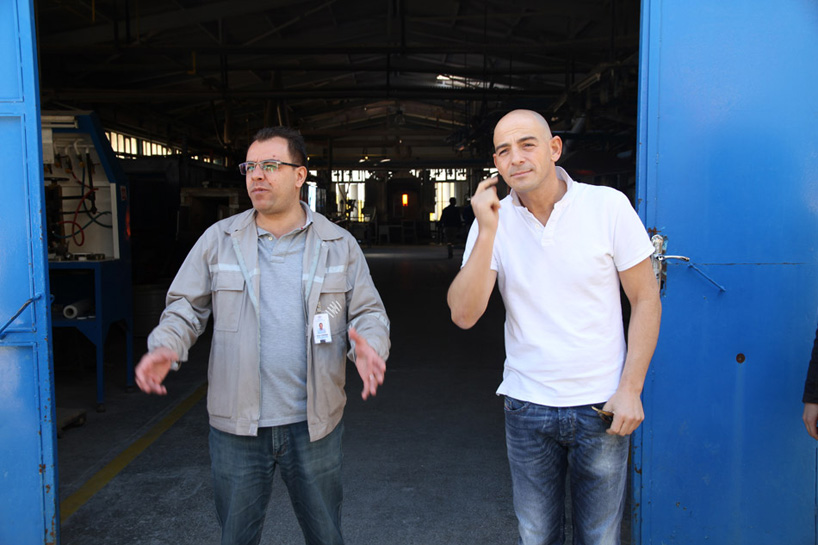
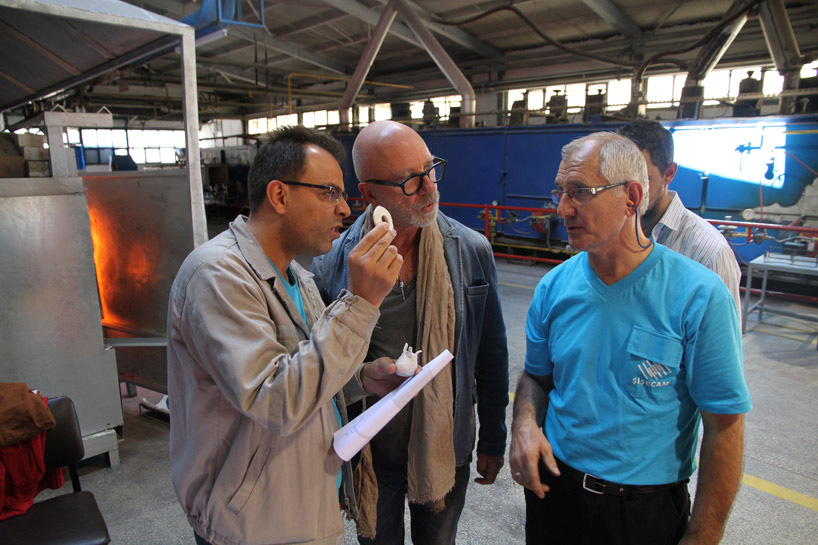
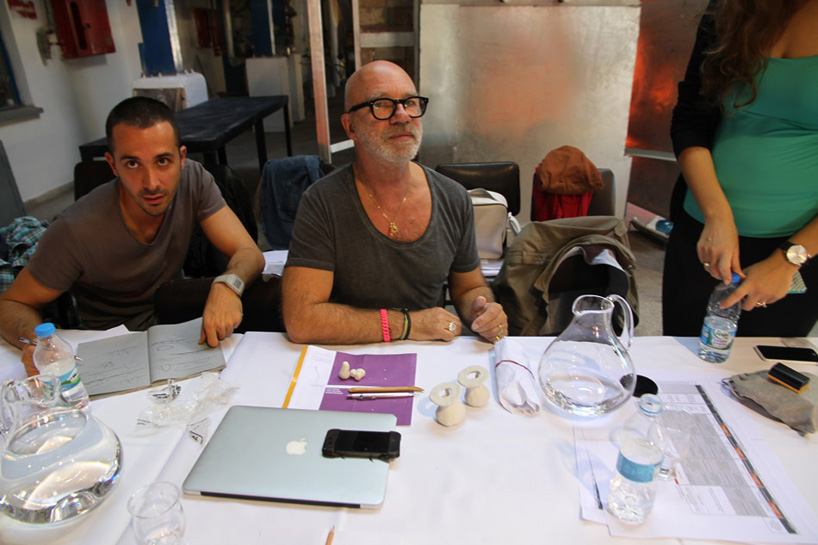
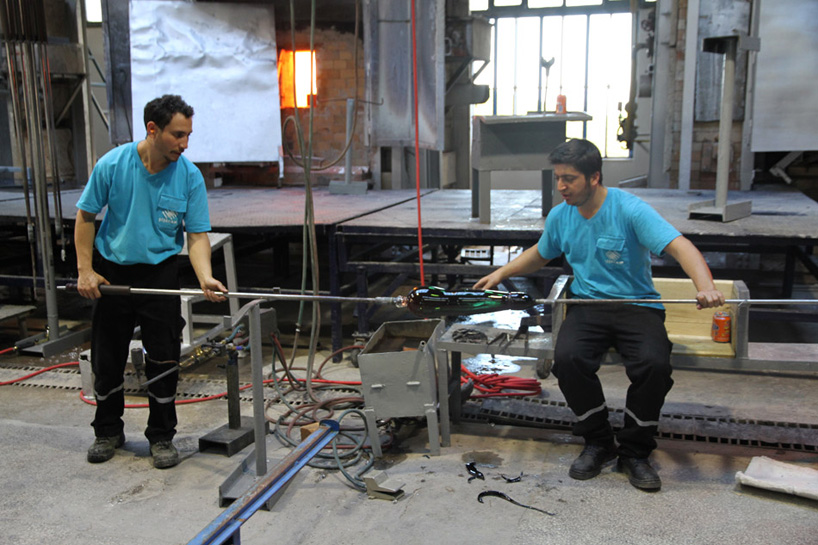
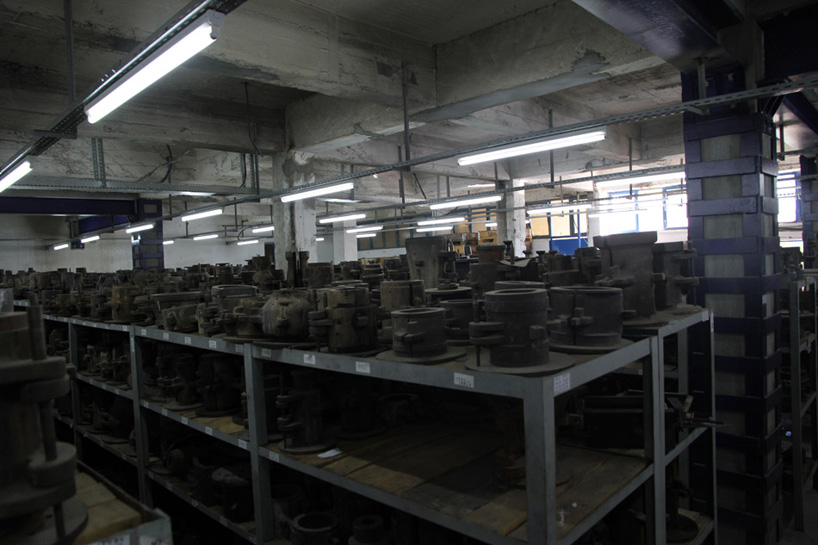
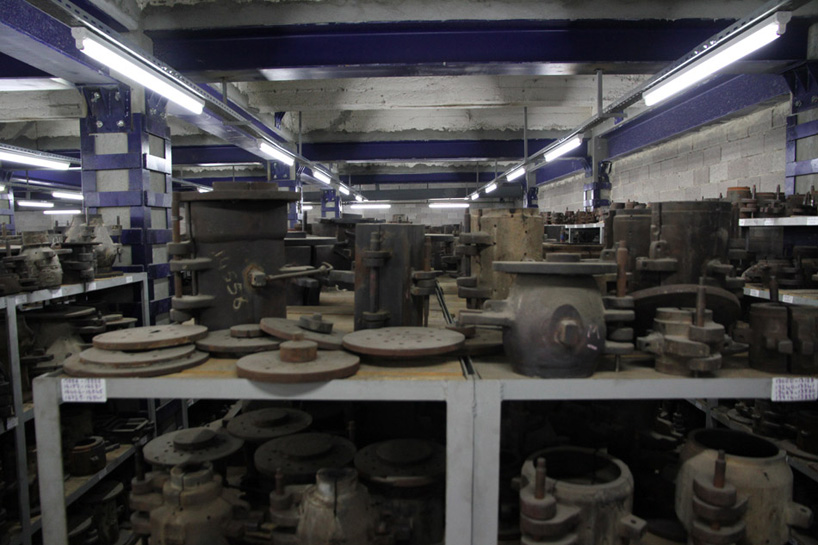
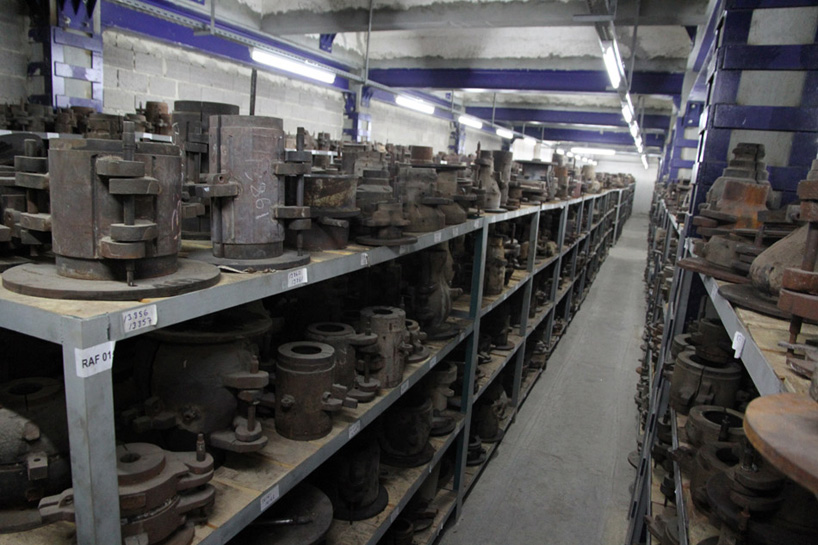
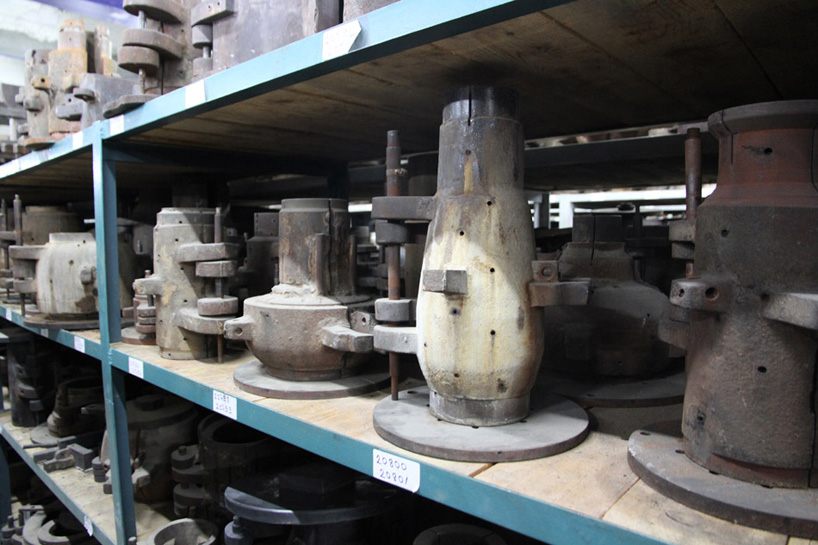
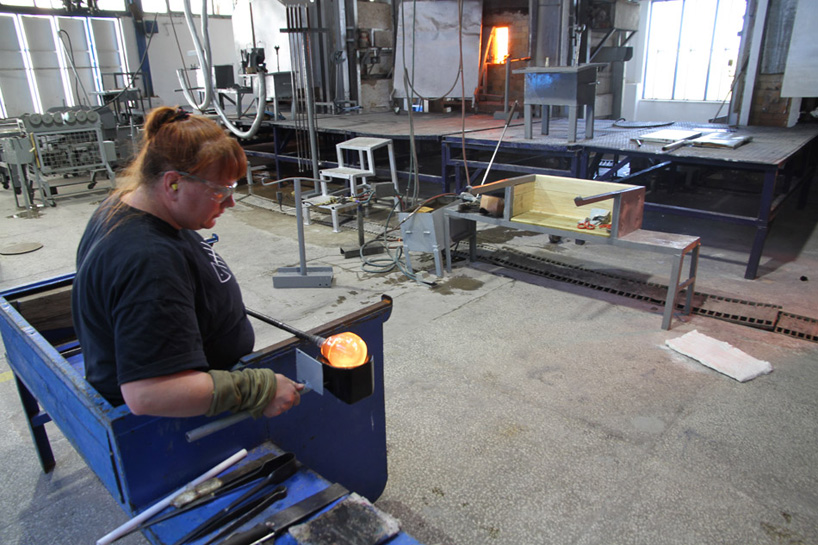
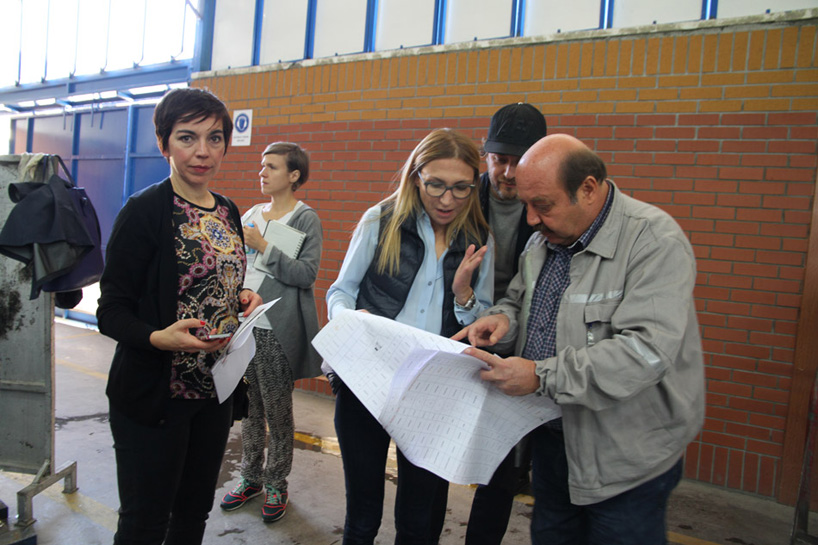
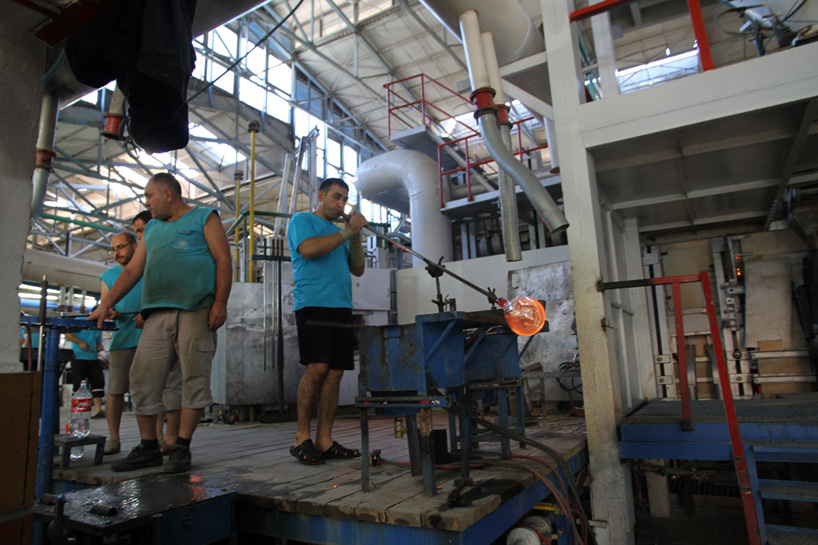
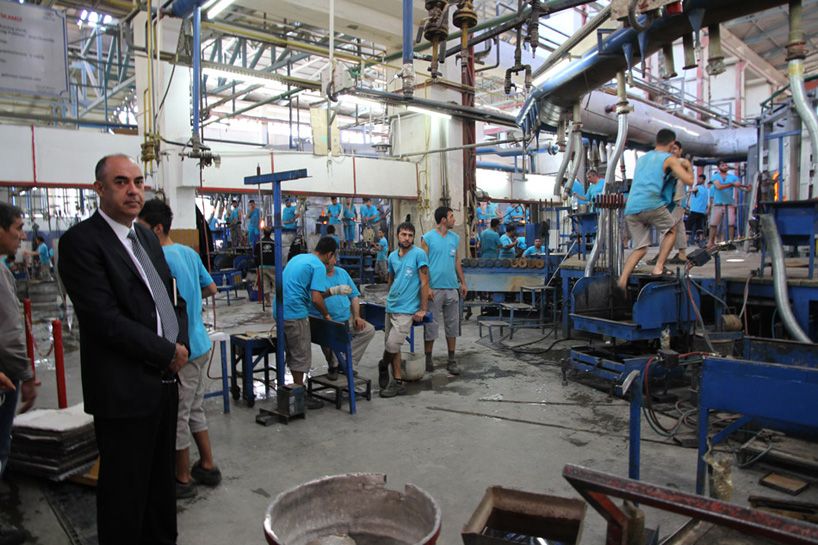
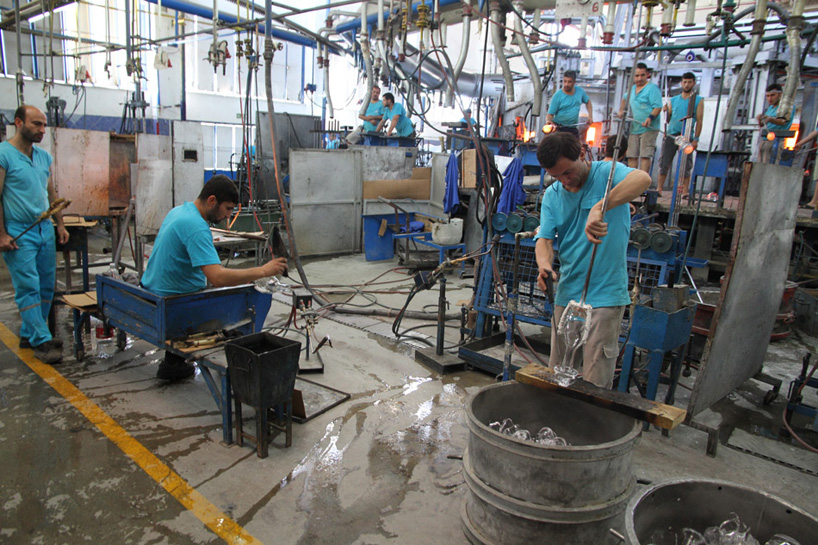
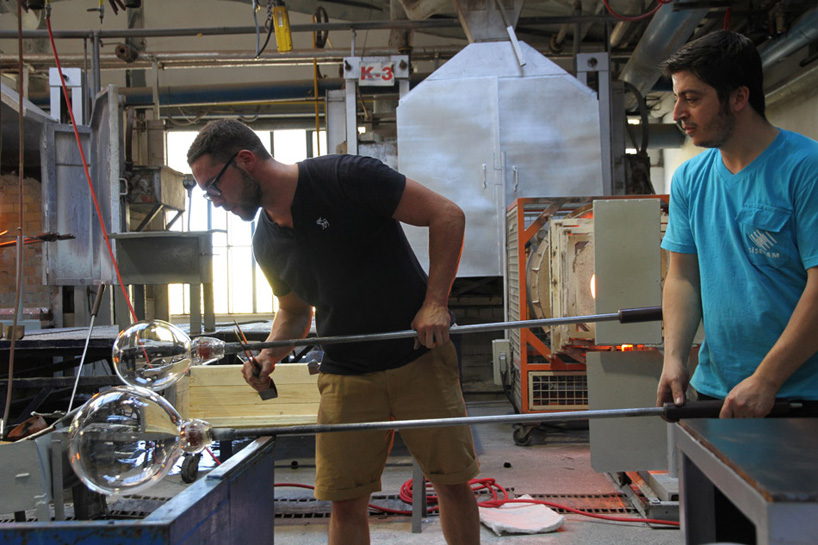
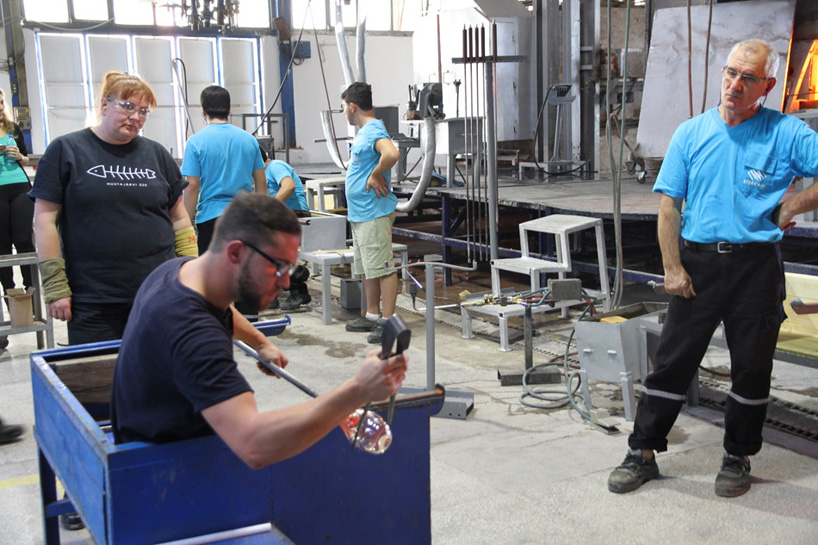
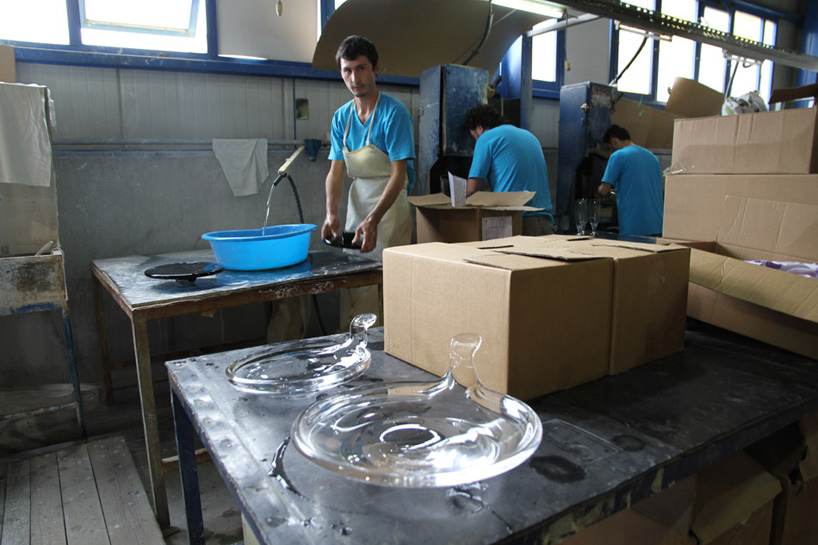
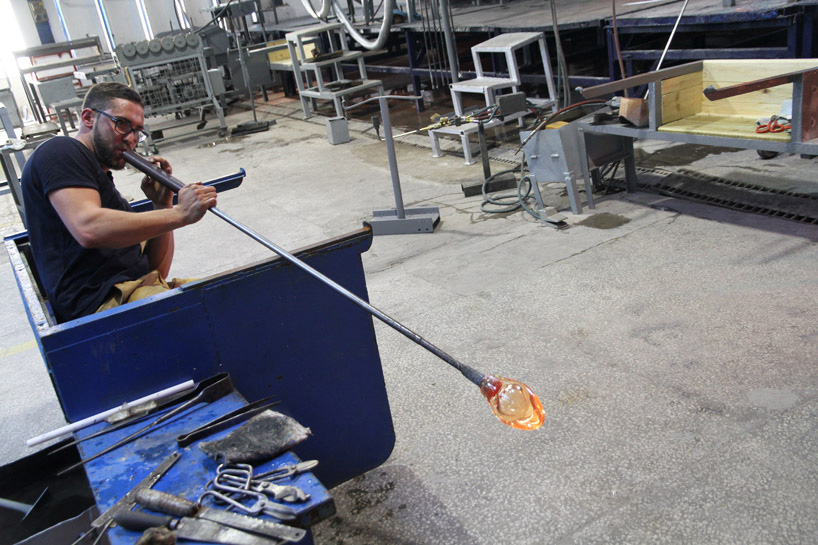
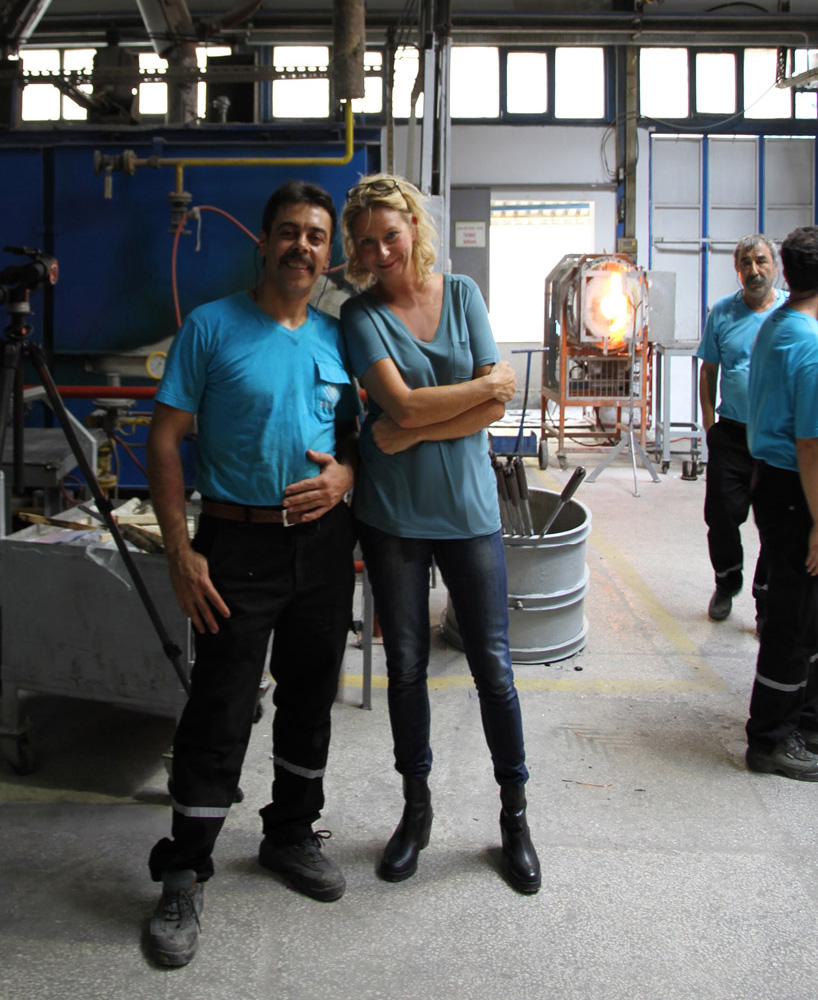
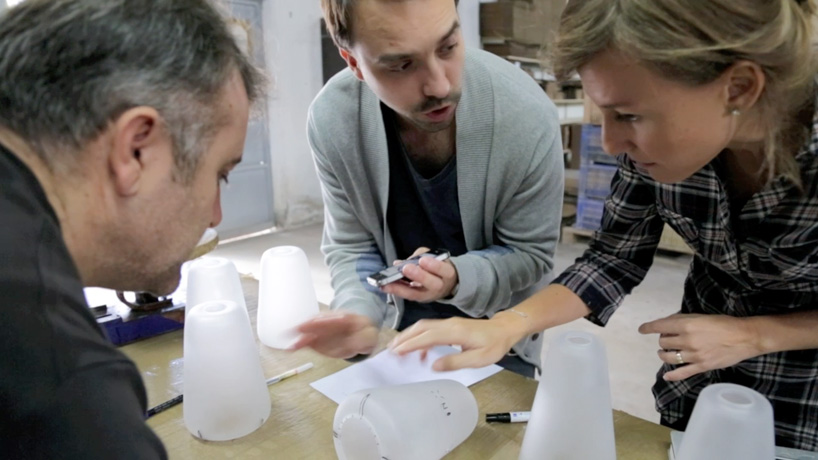
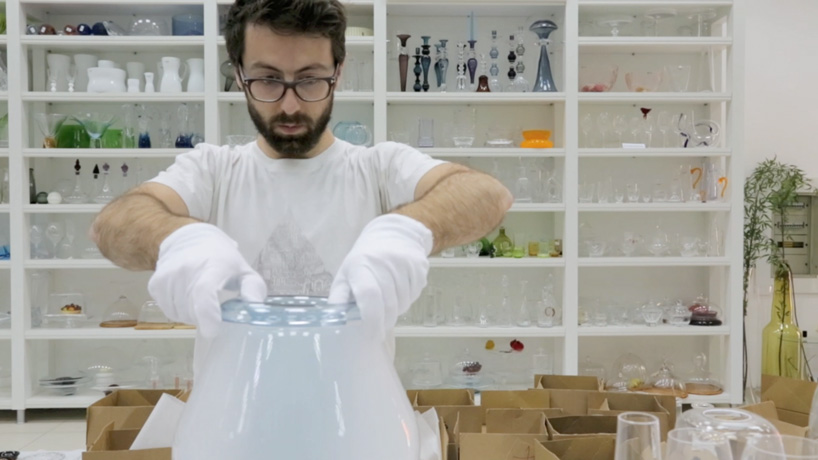
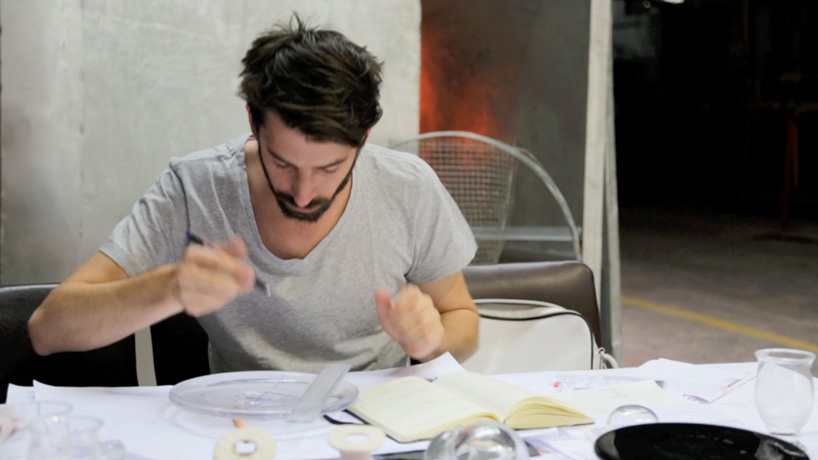
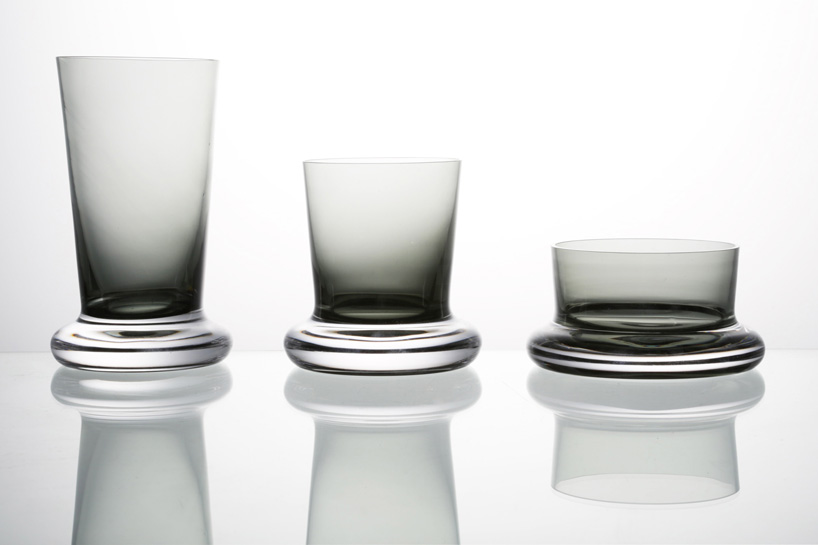
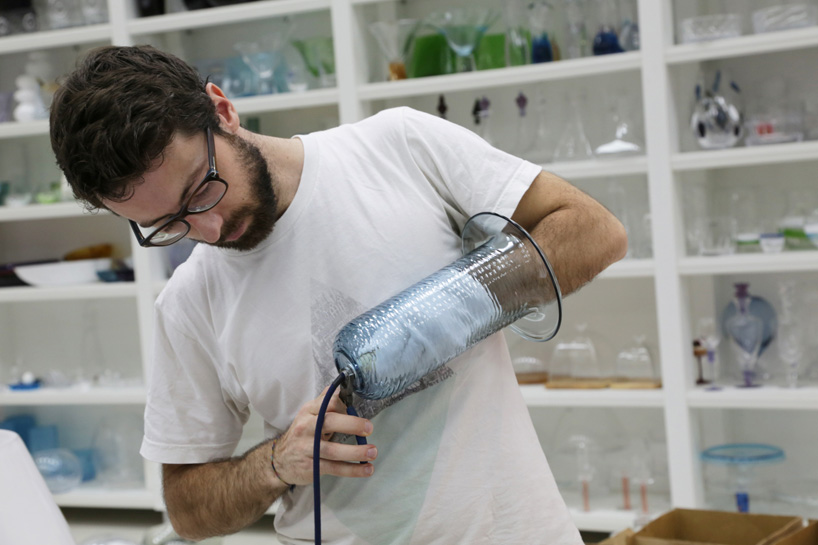
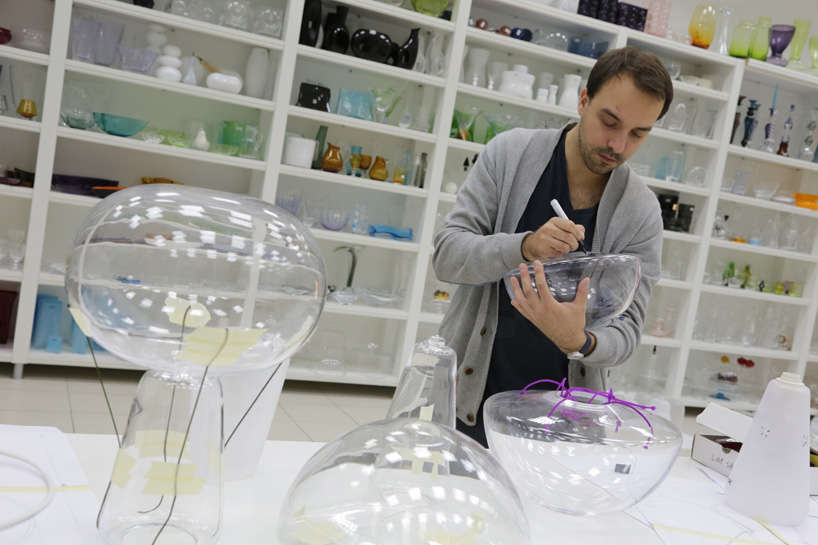
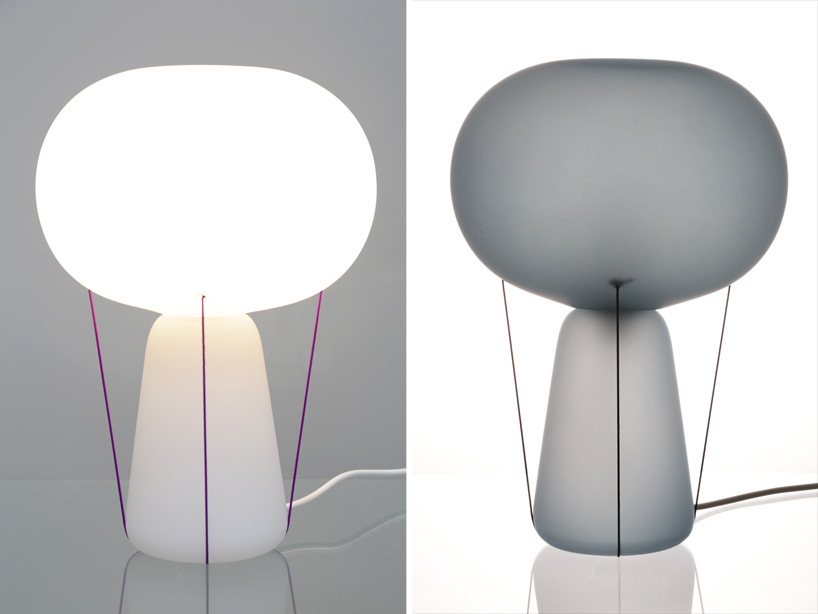
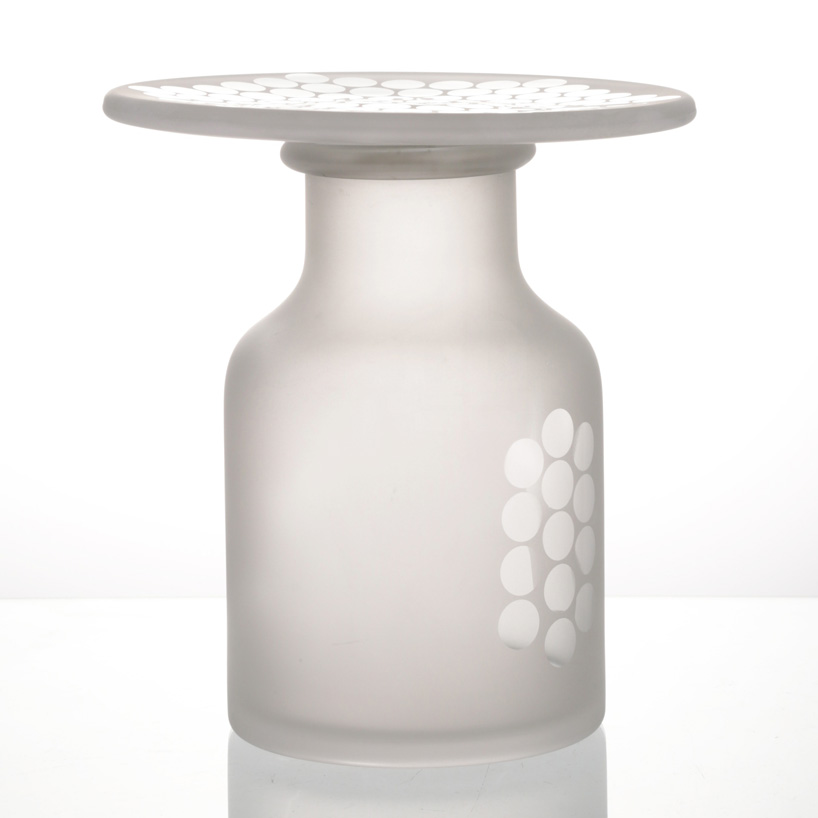
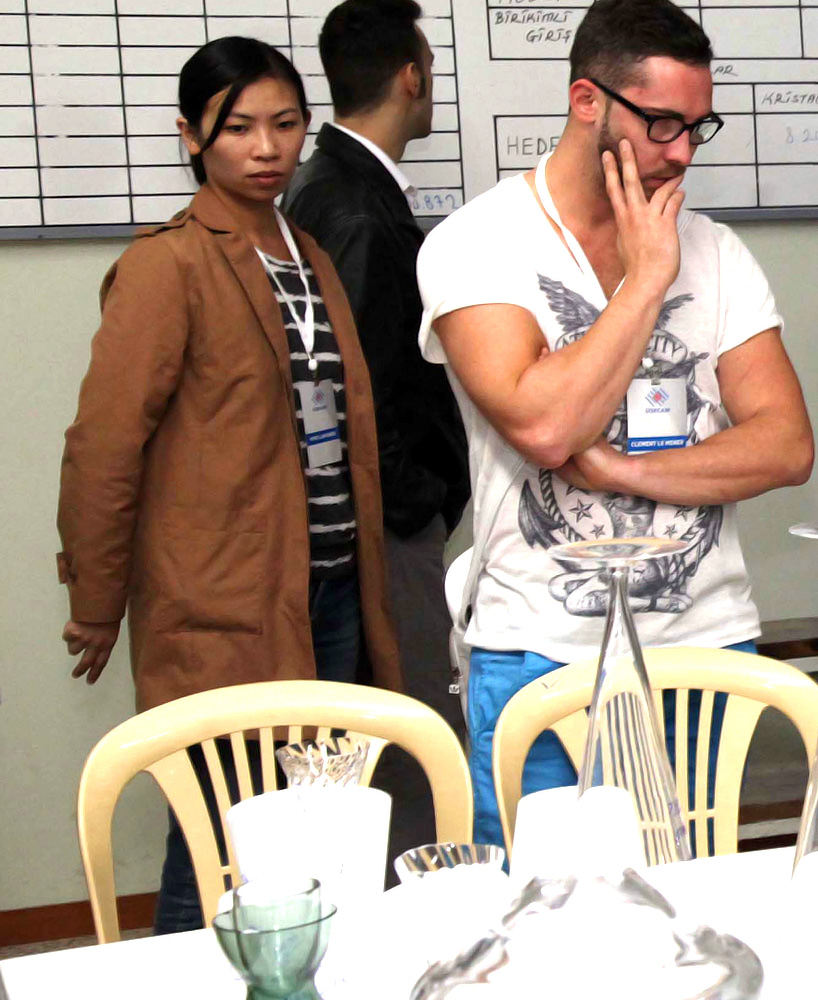
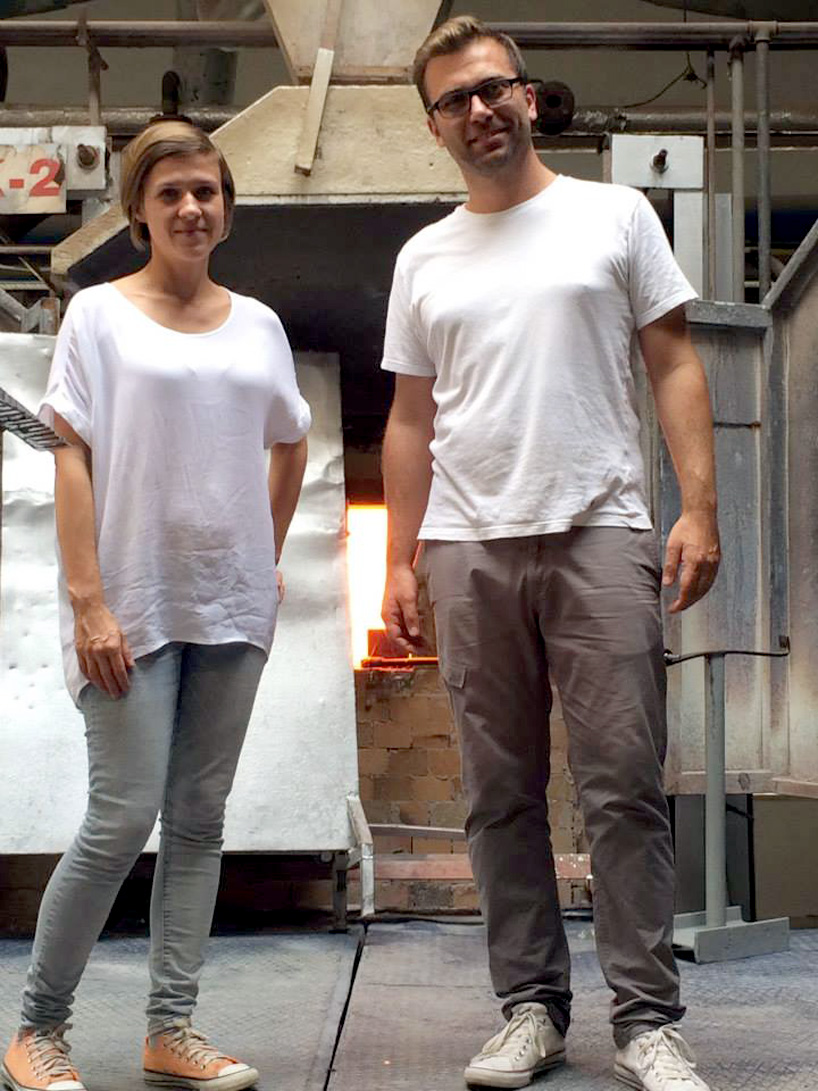
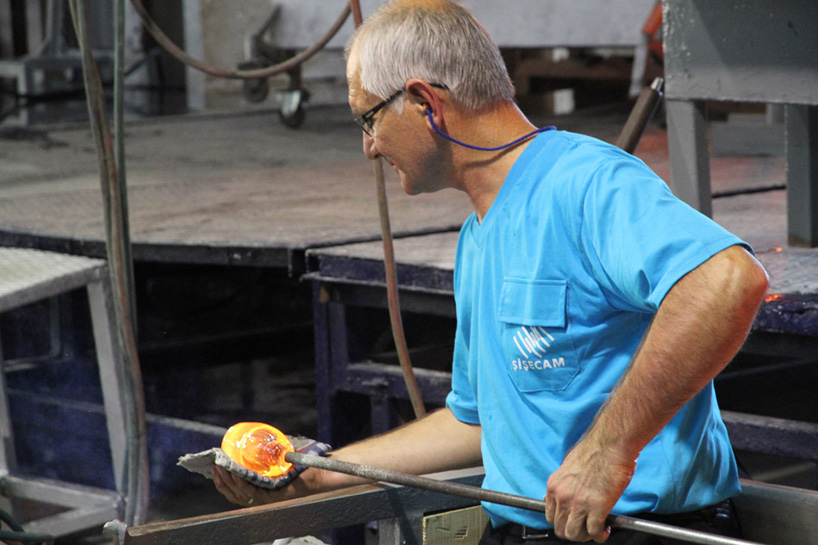
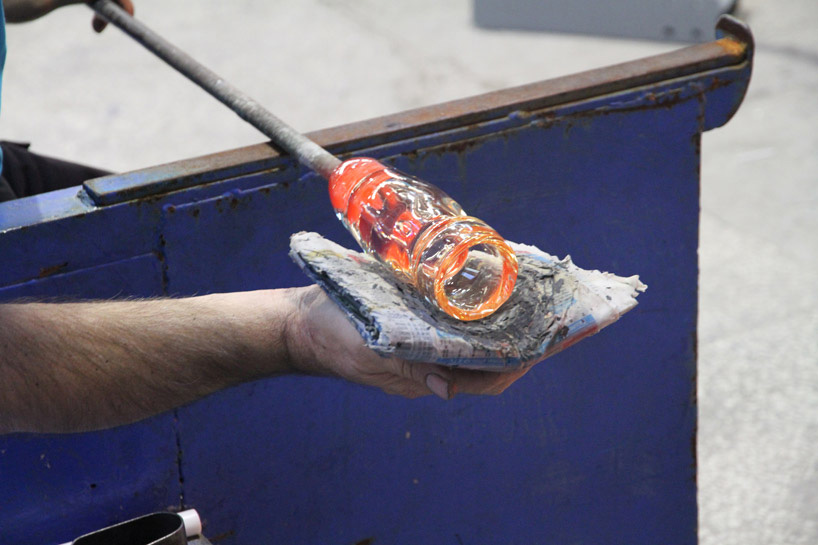
happening now! thomas haarmann expands the curatio space at maison&objet 2026, presenting a unique showcase of collectible design.
